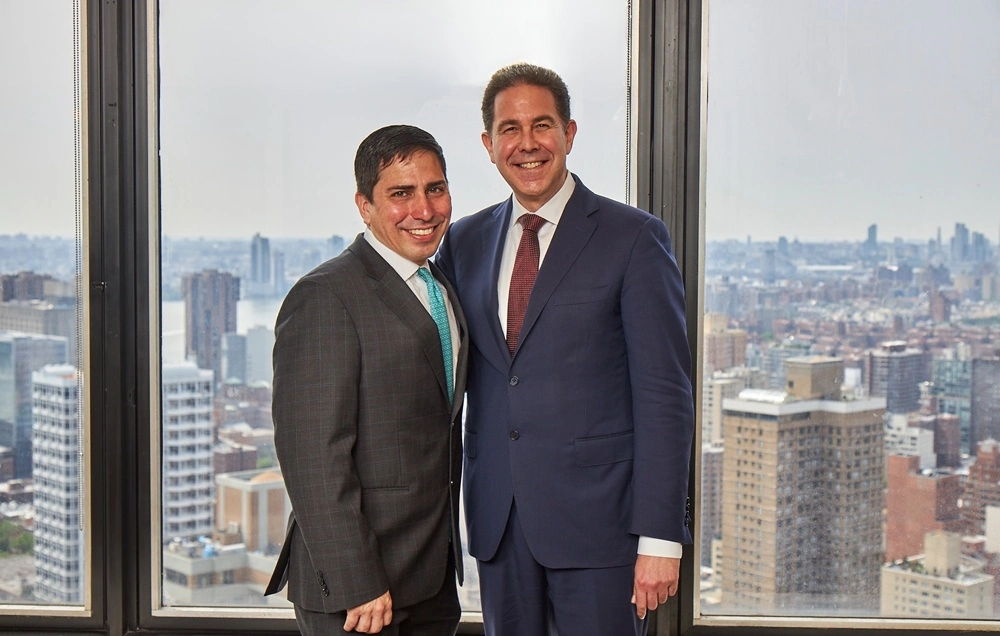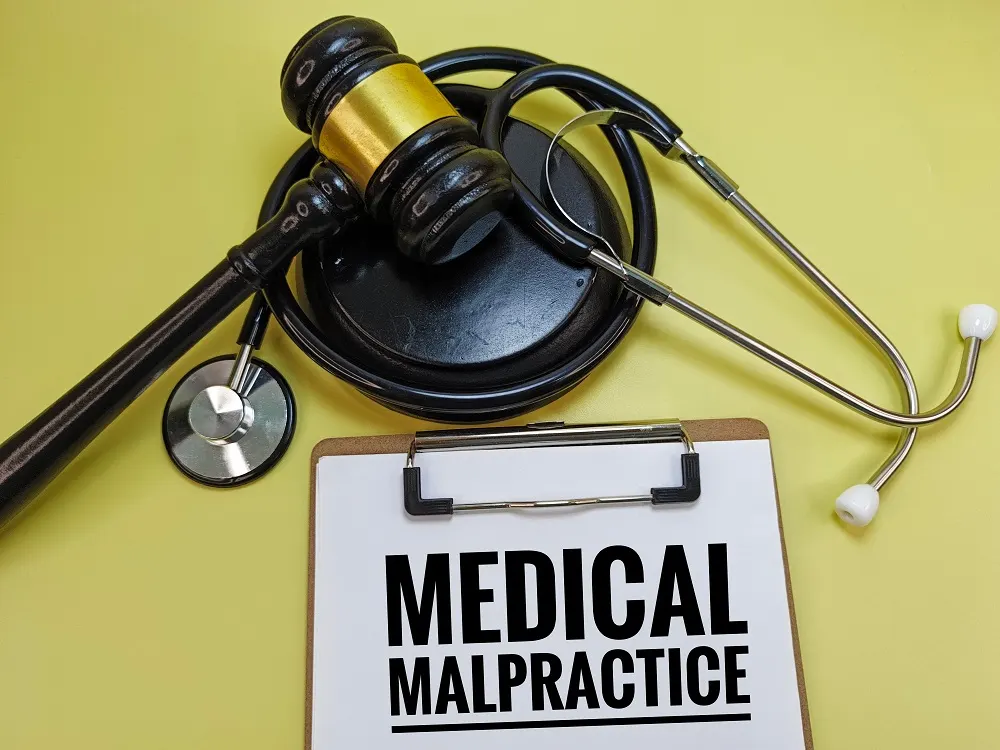Our New York Medical Misdiagnosis Attorneys Seek Justice for Wrongly Diagnosed Victims
In the challenging aftermath of a wrongful diagnosis, our dedicated team of medical misdiagnosis attorneys in New York is here to pursue justice on your behalf. We understand the profound impact that medical negligence can have on your life, and we are committed to holding at-fault healthcare professionals accountable for their grave errors.

With our experience and unwavering determination, we will help you navigate the complex legal landscape of medical lawsuits to seek the compensation you rightfully deserve. Trust our New York medical misdiagnosis attorneys to stand by your side, fight for your rights, and help you reclaim your future.
Frequent Medical Misdiagnosis Cases We Handle
In our mission to help innocent victims reclaim their health after a misdiagnosis, we commonly file lawsuits and reclaim compensation in the aftermath of various misdiagnoses, including:
Cancer Misdiagnosis
A cancer misdiagnosis can cost you precious time or put you through irrelevant therapy that is taxing to your health. Our attorneys review cases involving gynecological cancers, breast cancer, lung cancer, colon cancer, asbestos cancer, and other cancers, fighting to ensure your rights are protected and justice is served.
DVT Misdiagnosis
Early detection is crucial when it comes to deep vein thrombosis (DVT). If a DVT misdiagnosis has caused you harm, our legal professionals will fight to hold responsible parties accountable for their negligence.

Stroke Misdiagnosis
Prompt and accurate diagnosis is essential for those who are prone to strokes. If a stroke misdiagnosis or a delayed diagnosis has led to preventable harm, our team will fight on your behalf.
Pulmonary Embolism Misdiagnosis
A missed or delayed diagnosis of a pulmonary embolism can have severe consequences. Our attorneys are committed to righting these wrongs and advocating for victims of pulmonary embolism misdiagnoses.
Hemochromatosis Misdiagnosis
This condition causes the body to absorb and store excess iron, which can accumulate in organs such as the liver, heart, and pancreas, potentially leading to organ failure if left untreated. When caught early, hemochromatosis can be treated with regular phlebotomies, and complications can usually be reversed.
Meningitis Misdiagnosis
One of the most dangerous misdiagnoses involves meningitis — a potentially fatal inflammation of the membranes surrounding the brain and spinal cord. Doctors may mistake bacterial meningitis for the flu or migraine, delaying life-saving antibiotic treatment. Even a short delay in diagnosis can lead to brain damage, hearing loss, paralysis, or death.
How We Work on Your Misdiagnosis Case to Seek the Maximum Compensation for You
In order to help victims recover compensation after diagnosis errors and medical negligence, we will perform various tasks to ensure your success.
Here’s how we work on your case:




.svg)


- Thorough case evaluation: We carefully assess your misdiagnosis case to ensure we fully understand your unique situation.
- Expert medical analysis: We work closely with medical professionals who can often provide objective analysis and supporting evidence for your claim.
- Establishing negligence: As the linchpin of any successful claim, we will primarily focus on identifying the healthcare provider’s negligence or failure to meet an appropriate standard of care.
- Quantifying damages: We meticulously calculate your physical, emotional, and monetary damages to accurately assess the sum you deserve.
- Skillful negotiation: Our experienced negotiators will engage with the at-fault party and their insurers to pursue a fair settlement.
- Trial representation: If necessary, our attorneys are prepared to advocate for you in court, presenting a compelling case backed by evidence and expert testimony.
- Personalized attention: We provide personalized support, keeping you informed throughout the process and addressing any concerns or questions.
Trust our team to vigorously protect your rights and seek justice on your behalf.
#cta_start
Stand Up Against Medical Misdiagnosis with Our New York Legal Team
Fight back against negligent healthcare providers with our trusted legal team by your side. Take control of your rights and start your case today with a free consultation.
Get a Free Review of Your Case
#cta_end
Types of Misdiagnoses We Work With
Not every medical error merits a claim or lawsuit. After all, a doctor might act within accepted standards of care but still fail to diagnose cancer or another serious condition. However, when a negligent doctor fails to follow these standards of care and a patient is harmed, that’s where we step in.
We pursue the following types of medical misdiagnosis cases:
- Diagnosing the wrong condition: When medical providers inaccurately diagnose a condition, it can lead to unnecessary treatments or delays in receiving proper care.
- Missed diagnosis: A missed diagnosis occurs when a healthcare provider fails to identify a medical condition or illness altogether, resulting in the lack of necessary treatment and potential harm to the patient.
- Delayed diagnosis: When healthcare providers take an unreasonable amount of time to diagnose a medical condition, they can significantly impact a patient's prognosis and treatment.
- Not recognizing complications: Failure to recognize complications associated with a diagnosed condition can lead to severe consequences for the patient.
- Not recognizing a related illness or injury: If medical providers overlook an illness or injury that is related to the primary medical condition, it can hinder proper treatment and exacerbate the patient's condition.
In cases such as these, our dedicated team is here to provide guidance, support, and fierce advocacy for those who have been affected.
What Are Some Common Causes of Medical Misdiagnosis?

Misdiagnoses can result from various medical errors, including:
- Misinterpretation of symptoms: Symptoms of different medical conditions can sometimes overlap or mimic each other — healthcare providers may misinterpret these symptoms, leading to an incorrect diagnosis.
- Inadequate medical examination: Rushed or incomplete medical examinations may fail to uncover critical details about a patient's condition, potentially resulting in a misdiagnosis.
- Diagnostic testing errors: Errors in diagnostic steps, like lab and imaging tests, can yield inaccurate results, which in turn can lead to a misdiagnosis.
- Failure to consider patient history: Neglecting to thoroughly review a patient's medical history and previous conditions can result in overlooking crucial information that would otherwise alert the doctor to the patient's true condition.
- Lack of consultation: Failing to consult with appropriate specialists can limit a doctor's ability to accurately diagnose a patient's condition.
- Delayed diagnosis: Many medical conditions progress over time, which means that a delay in diagnosis can lead to missed opportunities for timely treatment.
- Communication breakdown: Miscommunication between healthcare providers — such as inadequate sharing of medical records or test results — can hinder the diagnostic process.
- Misreading of radiology scans: While advanced imaging is a cornerstone of modern medicine, overreliance on software-assisted findings — without the context of clinical judgment — can lead to misdiagnosis and treatment errors.
- Overlooking genetic predispositions: Failing to consider family history or order appropriate genetic testing for conditions like hemochromatosis can lead to missed diagnoses, especially when symptoms overlap with other conditions.
These common causes of medical errors should only reinforce the importance of comprehensive evaluation, clear communication, and ongoing vigilance to prevent and address medical misdiagnosis. But when healthcare providers fail to meet these standards, they open the door to costly and dangerous medical errors.
Who Is Liable in a Medical Misdiagnosis Case in New York?

In a medical misdiagnosis case, liability can extend to several parties, including:
- Primary healthcare provider: The primary healthcare provider who made the initial diagnosis may be held liable if their actions or decisions — such as misinterpreting test results or neglecting to order necessary tests — directly contributed to a misdiagnosis.
- Specialists: Specialists consulted during the diagnostic process can also be held responsible if their opinions or recommendations played a role in the misdiagnosis.
- Hospitals and medical facilities: Hospitals and medical facilities can be liable for medical misdiagnosis if they fail to maintain adequate protocols, staffing levels, or quality control measures that could have prevented the misdiagnosis.
- Laboratories: If the misdiagnosis resulted from errors in laboratory testing, the lab responsible for conducting those tests may bear liability.
- Nursing staff: Nursing staff who fail to communicate relevant patient information or administer tests incorrectly can also be held accountable.
- Pharmacists: In cases where medication errors contribute to the misdiagnosis or worsen the patient's condition, pharmacists may be liable.
- Manufacturers of medical devices or drugs: If a misdiagnosis is linked to faulty medical devices or medications, the manufacturers of those products may be held responsible.
While many parties can bear liability, it’s nearly impossible to track down all at-fault parties on your own. Establishing liability in a medical misdiagnosis case requires a thorough investigation, including a comprehensive review of medical records, expert testimony, and legal analysis. Therefore, it’s essential to consult with a medical misdiagnosis attorney who can assess the case and determine the responsible parties.
Injuries You May Sustain After You’ve Been Misdiagnosed

Delayed, missed, or incorrect diagnoses can cause an illness to wreak unnecessary havoc on your body. Sometimes, they allow a minor illness to develop into a serious condition and prevent you from accessing the care you need.
These are some common harmful effects that our clients face after a medical misdiagnosis.
Worsening of the Condition
A failure to diagnose can lead to a delay in receiving proper treatment, causing the underlying condition to worsen. This can result in increased pain, preventable suffering, and potential long-term complications.
Unnecessary Medical Procedures
Incorrectly diagnosing a condition may lead to unnecessary medical procedures or surgeries. These invasive interventions can result in physical harm, complications, and additional medical expenses.
Delayed Treatment of Serious Conditions
A doctor's failure to properly diagnose a serious condition, such as breast cancer, heart disease, or infection, can lead to delays. These delays can significantly impact the effectiveness of treatment and potentially worsen the prognosis.
Emotional Distress

The uncertainty and confusion surrounding a misdiagnosis can take a toll on a person’s mental well-being. It can cause significant emotional distress, anxiety, fear, and frustration.
Financial Burdens
Misdiagnoses can result in additional medical expenses, including the cost of unnecessary treatments, medications, and corrective procedures. It can also lead to lost wages due to prolonged illness or disability.
Reduced Quality of Life
Finally, misdiagnoses can impact a person’s overall quality of life. Physical pain, limitations, and emotional distress can significantly affect daily activities and personal relationships.
For these reasons and more, it is essential to consult with a dedicated New York medical misdiagnosis attorney to understand your rights and options if you have suffered harm due to a misdiagnosis. We can help you navigate the legal process, seek compensation for your injuries, and hold the responsible parties accountable for their negligence.
#cta_start
Ready to Fight for Justice After a Misdiagnosis?
Take control of your health and future today. Contact our experienced medical misdiagnosis attorneys for a free consultation and let us help you fight for the justice and compensation you deserve.
#cta_end
What Should You Do to Prove a Medical Misdiagnosis Case in New York?
Proving a medical misdiagnosis case in New York involves several key steps, including:
- Consult with medical experts: Enlist the support of medical experts who can provide opinions on the case and give testimony if needed.
- Establish the doctor-patient relationship: Show that a doctor-patient relationship existed, thereby indicating that the healthcare provider owed you a duty of care.
- Demonstrate the standard of care: Establish the applicable standard of care for your medical condition — that is, what a reasonably competent healthcare provider would have done under similar circumstances.
- Prove a deviation from the standard of care: Show that the healthcare provider deviated from the standard of care.
- Link the deviation to the misdiagnosis: Establish direct or indirect causation, showing that the misdiagnosis would not have occurred if the standard of care had been followed.
- Document harm and damages: Prove that the misdiagnosis resulted in harm or injury.
- Preserve evidence: Ensure that all relevant medical records, test results, imaging, and other documentation related to your case are preserved and available for examination.
- Obtain witness statements: Collect statements from witnesses who may have observed the misdiagnosis, its consequences, or other interactions with the healthcare provider.
- Follow legal procedures: This includes filing a lawsuit within the statute of limitations, participating in the discovery process, and presenting evidence during trial if necessary.
- Negotiate or litigate: Engage in negotiations with the healthcare provider's insurance company to reach a settlement, or proceed to trial if negotiations are unsuccessful.
As you can tell, proving a medical misdiagnosis case in New York is complex and requires a thorough understanding of medical malpractice laws and procedures. That’s why consulting with an adept medical malpractice attorney is essential to build a strong case and seek compensation for damages resulting from a misdiagnosis.
What Damages Can You Recover in Case of Misdiagnosis in New York?
In a misdiagnosis case in New York, you may be entitled to recover various damages, including:
- Medical expenses: Compensation for the costs of medical treatments, procedures, medications, and related expenses resulting from the misdiagnosis.
- Lost wages: Reimbursement for income lost due to the misdiagnosis, including past and future earnings.
- Pain and suffering: Compensation for physical pain, emotional distress, and loss of enjoyment of life caused by the misdiagnosis.
- Disability or impairment: Damages awarded if the misdiagnosis resulted in a long-term disability or an impairment that affects your quality of life or ability to work.
Depending on the specifics of your case, you may also be eligible to recover punitive damages if the healthcare provider’s conduct was particularly egregious.
How Long Do You Have to File a Medical Misdiagnosis Claim in New York?

In New York, the statute of limitations for filing a medical misdiagnosis claim is generally two-and-a-half years from the date of the misdiagnosis or from the end of continuous treatment.
However, important exceptions apply:
- Cancer misdiagnosis (Lavern's Law): For cases involving failure to diagnose cancer or malignant tumors, victims have 2.5 years from the date they discovered the misdiagnosis, up to a maximum of 7 years from the date the malpractice occurred.
- Foreign objects: If a foreign object was left inside the body, you have one year from discovering it.
- Minors: Special extensions may apply for patients who were minors at the time of treatment.
Here’s What You Should Do in Case of Misdiagnosis
Discovering that you have been misdiagnosed can be a distressing experience, but it is crucial to remember that you have options and the ability to take control of your situation.
You can assert your rights, seek justice, and pursue the compensation you deserve by following these steps:
- Seek a second opinion: Consult another healthcare provider or specialist to confirm or correct the diagnosis.
- Gather medical records: Collect all relevant medical records, including test results and treatment history.
- Document symptoms: Keep a detailed record of your symptoms, their progression, and any new developments.
- Communicate openly: Maintain open communication with your healthcare providers, informing them of any concerns or changes in your condition.
- Know your rights: Familiarize yourself with your rights and options under medical malpractice laws.
- Consult legal counsel: If you suspect medical malpractice, consult with an experienced medical malpractice attorney to explore your legal options.
- Support and resources: Seek emotional support from loved ones and consider joining patient advocacy groups for guidance.
- Stay informed: Stay informed about your condition, treatment options, and any new medical developments.
An attorney will help you navigate the process of addressing a misdiagnosis. However, you must act promptly — your attorney needs time to build a case when you are pursuing a misdiagnosis lawsuit or claim, so the sooner you consult with a legal professional, the better.

.svg)


.svg)
.svg)













.svg)
.svg)

.svg)
.svg)




.avif)


